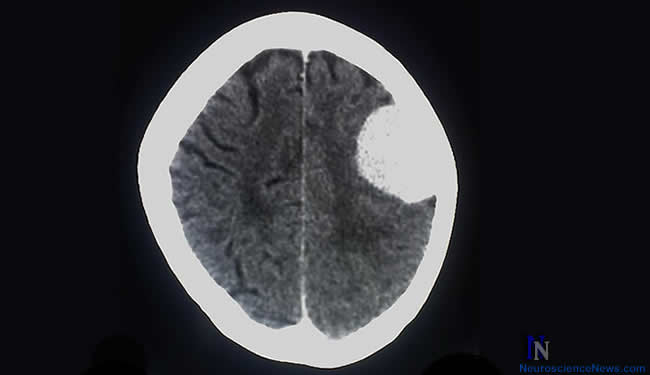Johns Hopkins scientists hope discovery will drive drug treatments.
Johns Hopkins researchers say they have discovered one of the most important cellular mechanisms driving the growth and progression of meningioma, the most common form of brain and spinal cord tumor. A report on the discovery, published in the journal Molecular Cancer Research, could lead the way to the discovery of better drugs to attack these crippling tumors, the scientists say.
“We are one step closer to identifying genes that can be targeted for treatment,” says study leader Gilson S. Baia, Ph.D., a faculty research associate in the Department of Neurosurgery at the Johns Hopkins University School of Medicine.
Baia and his team based their study on the knowledge that in roughly two-thirds of cases of meningioma, patients have a mutation in the NF2 tumor suppressor gene, an alteration that disrupts the expression of the protein called Merlin. Merlin, in turn, kicks off a cell signaling pathway called Hippo, and in the new study, Baia and his colleagues determined that if Merlin is missing, the Hippo pathway is disrupted. In normal development, Hippo controls the size of tissues and organs in the body. It is activated when tissue needs to grow and also acts as a brake on uncontrolled growth. If disrupted, a biochemical cascade produces uncontrolled tumor growth.

In meningioma cells, Baia studied the activation of a protein called YAP1, for Yes-associated protein 1, which is regulated by Hippo. Without it, YAP1 moves into the cell nuclei and activates genes whose products trigger tumorigenesis and cell proliferation.
In recent years, the Hippo pathway has been found to play a role in the growth of other types of cancers, but this is the first time the pathway has been implicated in meningioma, Baia says. YAP1 has also been implicated in other cancers, he says, including lung and ovarian malignancies, and the mutation in NF2 has been found in other, less common forms of brain cancers as well as in mesothelioma, a type of lung cancer mostly associated with exposure to asbestos.
In their research, the investigators collected 70 human meningioma tissue samples and found that YAP1 expression was present in the nuclei of all of the samples, regardless of tumor “grade,” meaning it appears to be a molecular mechanism involved in the earliest stages of meningioma development. In the lab, Baia knocked down the amount of YAP1 in cell nuclei and found that tumor proliferation went down. When there was more YAP1, the cells grew and also migrated more.
Baia and his team also injected human cell lines in which YAP1 was overexpressed into the brains of the mice. “With excess YAP, all of the mice got tumors,” Baia says.
The next step, Baia says, is to determine the exact genes activated by the arrival of YAP1 in the cell nuclei. Then, the hope is, new treatments can be developed to target those genes, he adds.
Notes about this brain and spinal cord research and article
Funding: The research was supported by donations from Leonard and Phyllis Attman and the Meningioma Mommas Foundation.
Other Johns Hopkins researchers involved in the study include Otavia L. Caballero, M.D., Ph.D.; Brent A. Orr, M.D., Ph.D.; Janelle S. Y. Ho; and Gregory Riggins, M.D., Ph.D.
Contact: Stephanie Desmon – Johns Hopkins Medicine
Source: Johns Hopkins Medicine press release
Image Source: Neuroscience image of meningioma tumor was taken from an image in the public domain. Feel free to use.
Original Research: Abstract for “Yes-Associated Protein 1 Is Activated and Functions as an Oncogene in Meningiomas” by Gilson S Baia, Otavia L Caballero, Brent A Orr, Anita Lal, Janelle S.Y. Ho, Cynthia Cowdrey, Tarik Tihan, Christian Mawrin, and Gregory J Riggins in Molecular Cancer Research 2012; doi: 10.1158/1541-7786.MCR-12-0116







